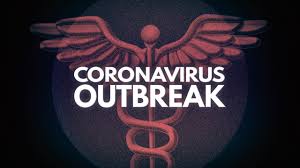
(ROME) – Expressing increasing alarm about mounting infections, the World Health Organization declared Wednesday that the global coronavirus crisis is now a pandemic.
Tedros Adhanom Ghebreyesus, who heads the U.N. agency, said the WHO is “deeply concerned by the alarming levels of spread and severity” of the outbreak. He also expressed concern about “the alarming levels of inaction.”
“We have, therefore, made the assessment that COVID-19 can be characterized as a pandemic,” he said at a briefing in Geneva.
The COVID-19 viral disease that has swept into at least 114 countries and killed more than 4,000 people. Hope remains that COVID-19 can be curtailed. And Ghebreyesus urged countries to take action now to stop the disease.
“WHO has been in full response mode since we were notified of the first cases,” he said. “And we have called every day for countries to take urgent and aggressive action. We have rung the alarm bell loud and clear.”
Eight countries — including the U.S. — are now each reporting more than 1,000 cases of COVID-19, caused by the coronavirus that has infected nearly 120,000 people worldwide.
“In the past two weeks, the number of cases of COVID-19 outside China has increased 13-fold, and the number of affected countries has tripled,” Tedros said.
“In the days and weeks ahead, we expect to see the number of cases, the number of deaths and the number of affected countries climb even higher.”
The WHO is “deeply concerned, both by the alarming levels of spread and severity and by the alarming levels of inaction” by world leaders in response to the outbreak, Ghebreyesus added.
By dubbing COVID-19 a pandemic, the WHO is placing it in a category above several recent deadly outbreaks, including the recent Ebola outbreak in the Democratic Republic of Congo, the Zika virus outbreak in 2016 and the 2014 Ebola outbreak in West Africa. Those outbreaks were all deemed to be international emergencies.
Still, Ghebreyesus said that people should not fear the designation and that it should not be taken to mean that the fight against the virus is over.
“Describing the situation as a pandemic does not change WHO’s assessment of the threat posed by the virus,” he added. “It doesn’t change what WHO is doing. And it doesn’t change what countries should do.”
The WHO had declared the outbreak a global health emergency in January, as cases surged in China, where the novel coronavirus was first detected.
In Italy, more than 630 people have died of COVID-19, and the total number of cases continues to rise sharply. The country now has 10,000 cases, second only to China. There are 9,000 cases in Iran and more than 7,700 in South Korea.
Those four nations are all imposing drastic measures in an attempt to slow the spread of the COVID-19 illness, which has a higher fatality rate for elderly people and those with underlying health conditions.
Those countries also have more than 90% of current cases, adding that both China and South Korea have had success in reining in their epidemics. Data from China, he said, showed that the number of new cases there peaked in late January and early February.
“We cannot say this loudly enough, or clearly enough, or often enough: All countries can still change the course of this pandemic,” Ghebreyesus said.
However, the viral disease continues to spread around the globe.
“In the Americas, Honduras, Jamaica and, Panama, are all confirming coronavirus infections for the first time,” NPR’s Jason Beaubien reports. “Elsewhere, Mongolia and Cyprus are also now reporting cases.”
As the outbreak has ballooned, so has speculation that the WHO would declare it a pandemic. WHO experts had previously determined that the scale of the coronavirus’ impact didn’t warrant that description. And he noted that declaring the outbreak of a pandemic would raise the risk of public panic.
It’s now up to other countries to prove they can stop the disease, Ghebreyesus reiterated.
“The challenge for many countries who are now dealing with large clusters or community transmission is not whether they can do the same,” he said. “It’s whether they will.”
“People, we’re in this together — to do the right things with calm and protect the citizens of the world,” Ghebreyesus said as he concluded his remarks. “It’s doable.”
Coronavirus symptoms and prevention
To prevent the coronavirus from spreading, the Centers for Disease Control and Prevention recommends washing hands with soap and water for at least 20 seconds or using a hand sanitizer if a sink isn’t available. The World Health Organization says people should wear face masks only if they’re sick or caring for someone who is.
The most common symptoms of COVID-19, according to a recent WHO report that draws on more than 70,000 cases in China, are the following: fever (in 88% of cases), dry cough (68%), fatigue (38%) and sputum/phlegm production (33%).
Shortness of breath occurred in nearly 20% of cases, and about 13% had a sore throat or headache, the WHO said.



